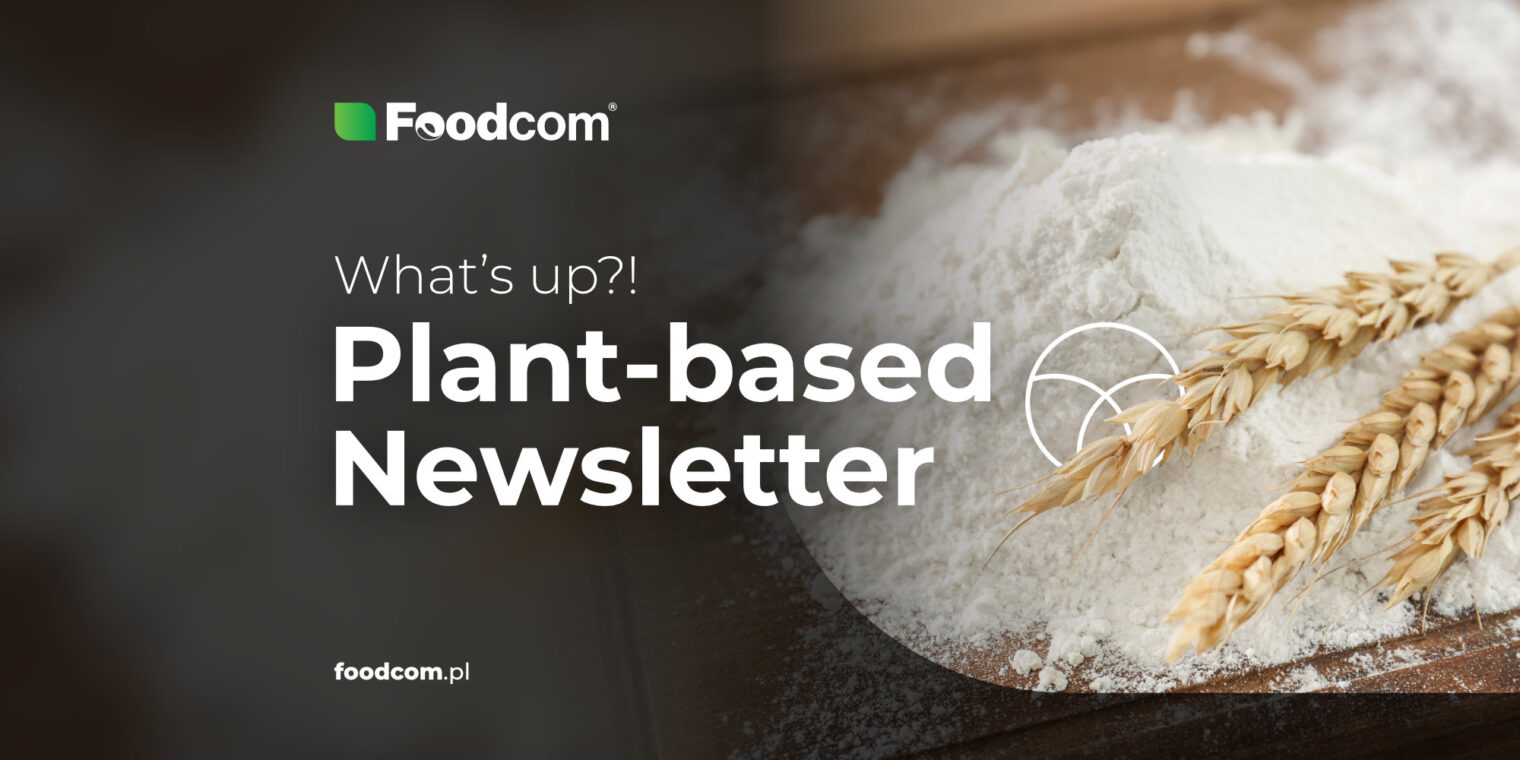Well, the elephant in the room is undoubtedly the ban on imports of Ukrainian products imposed by some Central European countries. The situation is dynamic (wow, what a novelty), so we hope you will stay informed. Undoubtedly, this is the factor that currently has the greatest impact on prices, availability and the overall situation in the plant-based market and beyond.
As a result of the ban, sugar, starches and protein prices, among others, have risen as the cheap raw materials stopped coming in. Undoubtedly, this is good news for certain groups, such as farmers in countries that have imposed a ban or restrictions, but it does not please consumers or processors who have been using raw materials from Ukraine.
And what else? It’s getting warmer in many regions, so consumers and other living creatures will certainly be hosting barbecues and traveling. Spending more time outdoors encourages changes in the structure of consumption (which generally means that demand for raw materials for the production of ketchup and mustard will increase). Of course, the higher temperatures are not all cause for celebration: severe droughts are raging in some regions, including France and Spain. There are bound to be more of those, after all, it’s only April.
Native Starches
We constantly receive inquiries for Native Starch, in large numbers from the Far East. Native Potato Starch is still in short supply in some Central European countries due to the ban on the (cheap) Ukrainian product, manufacturers offer it at similar or the same prices and there is not much difference. There are requests for Native Corn Starch, many of them from Asia. Buyers are looking for insanely low prices (but is not that true for all products at all times?). We are still waiting for paper manufacturers to start ordering large quantities again. Native Wheat Starch is also very popular, and many requests are coming in, also mainly from Asia.
Modified Starches
The market for Modified Starches has slowed down recently. Some attribute this to the time left to the next harvest, which strongly influences current buying decisions. Modified Waxy Corn Starch is hard to find on the market, which means its price is not dropping. Modified Potato Starch is very hard to find, only a few truckloads at a time are available on the market (but this is nothing new).
Proteins
There have been cases where Eastern European wheat was contaminated with soy. As a result, some batches of Vital Wheat Gluten produced in Europe were also contaminated with soy. The source of the contamination is currently being sought. Despite these issues, we are receiving many inquiries for large quantities. Most of the inquiries are for post-harvest pricing, for Q3 and beyond. Regarding Pea Protein, we are hearing that the product originating from China is currently sold out, so buyers are reaching for product from other sources. Overall, the feed sector is waking up again, as evidenced by increased interest in Potato Protein and Corn Gluten Meal, among others.
Sweeteners
The price of Sugar is rising as more and more people realize that after the introduction of the ban on Ukrainian goods, it will be difficult to get the cheap product. Well, actually, the price is rising like crazy. Among plant-based products, Sugar and Lecithin are the most popular. The situation with Dextrose is stable, the price is slightly decreasing. The Asian variant is still cheaper than the European one. As is common knowledge, not everyone is willing or able to reach for a product manufactured outside Europe. For Sorbitol, prices are still crazy, while Isomalt has recently become much scarcer.
What else?
Europe
Turkey imposes import duties on Ukrainian grain
The new provisions will come into force on May 1. The said duty will apply to wheat, corn and barley and will be 130% of the price. The current tariffs are 0%. So, the difference will be significant (to put it mildly), especially given the fact that Turkey has been the biggest buyer of Ukrainian wheat and barley so far. The Turkish government emphasizes that the purpose of introducing the new rules is to protect local producers at the beginning of the new season.
Europe’s largest sugar producer reports impressive profits
Suedzucker recently announced that its profit growth for the full year was 112%. The result is all the more encouraging considering that the sugar sector has been posting losses for the past four years. Company representatives expressed hope for a continuation of the upward trend, but everything depends on the geopolitical situation, and as we know, it changes by the minute…
The European Commission agrees to an import ban on sunflower oil from Ukraine
The EC has agreed to ban imports of sunflower oil produced in Ukraine, but transport of the product will still be allowed. At this point, it is unclear what the next steps in this matter will be in Europe, but it is clear that this soap opera will continue for some time. Several seasons?
The Americas
Soybean prices in the Brazilian domestic market continue to fall
Soybean prices in Brazil continue to be on a downward trend. This is happening even though the value of the dollar has increased. As one can easily imagine, the main reason for this trend is oversupply. There is a saying that you can not have too much of a good thing, but apparently you can.
Canadian agriculture hit by strike
The strike in the Canadian public sector has now been going on for a week. Some 155 000 union members are participating. Their demands are: wage increases, the introduction of telecommuting as a negotiable right for some employees, a ban on contracting out, and a requirement that in the event of staff reductions, decisions be based on seniority. Among the strikers are grain freight inspection officials, resulting in transportation delays and rising costs that affect carriers, growers and farmers.
The situation in the U.S. and Brazil is putting pressure on corn prices
In the U.S., according to the latest data, 14% of the planned acreage is already planted to corn. A year ago, at this time, it was 7%, and the average for the last five years is 11%. In Brazil, favorable weather prevailed in most corn-growing regions, but in the state of Paraná, seeding was completed after the optimal time, creating a risk of crop damage due to drought in May. The combination of these two factors has resulted in corn futures trading at low levels on the Chicago exchange.
Asia & Oceania
Palm cultivation, key to India’s self-sufficiency
As the world’s most populous country, India is a major consumer of palm oil, the world’s most popular vegetable oil. More than 90% of domestic demand is met by imports, which is clearly seen as a disadvantage, so efforts are being made to change this situation. To reduce the burden on the national treasury and the impact of disrupted supply chains, India is trying to increase domestic production and meet the demand for palm oil itself.
Pistachio rules in Iran
Pistachios have topped the list of Iranian agricultural and food exports in recent months, according to the latest data. They were followed by tomatoes, dates and watermelons. Anyway, you could make a very interesting salad out of them…
Malaysia calls the new EU law unjust
The European Parliament has approved a law that says companies selling goods to the European Union will have to provide ‘verifiable’ information proving their goods were not grown on deforested land, under threat of heavy fines.. The law applies to soybeans, beef, palm oil, cocoa and coffee, among others. Malaysian government officials say this law is intended to hit palm oil production and that the poorest farmers will suffer the most.







